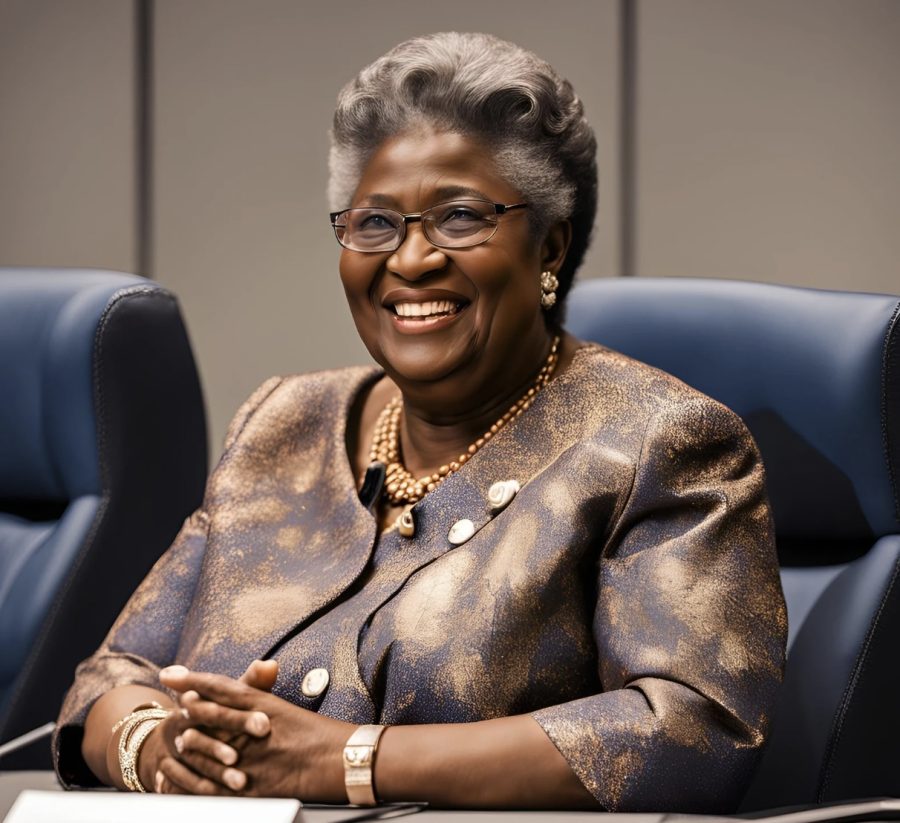Experts reflect on why Okonjo-Iweala gets reappointed as WTO DG, despite uncertainties and growing tension from the United States.
Dr Ngozi Okonjo-Iweala has been reappointed for a second term as the Director-General of the World Trade Organization (WTO). The 70-year-old Nigerian economist made history as the first woman and the first African to hold the position. Her reappointment was approved by consensus, and she was the only candidate in the race.
Okonjo-Iweala’s reappointment was not a surprise. Analysts says she has proven to be a steady leader for the WTO during her first term. The organization’s 166 members were eager to secure her second mandate, especially considering the global uncertainties surrounding international trade. The process was expedited at the request of African countries who wanted to avoid the disruption caused by potential opposition from a new U.S. administration.
Her reappointment was seen as a move to prevent a leadership vacuum at the WTO. African nations, in particular, pushed for a quick decision to avoid a repeat of the 2020 leadership deadlock. That was when former President Donald Trump blocked her appointment for months. This time, WTO members feared that without Okonjo-Iweala, the U.S. could further weaken the organization.
Okonjo-Iweala’s Leadership Style and Achievements
Okonjo-Iweala has earned respect for her diplomatic style and pragmatic approach. She’s been praised for her ability to navigate complex global trade dynamics. Since taking office in 2021, she has worked to revive the WTO’s relevance, focusing on climate change, health, and trade reforms.
Her leadership during the COVID-19 pandemic was a key achievement. Okonjo-Iweala helped the WTO play a pivotal role in global vaccine distribution, ensuring that trade barriers didn’t hinder the delivery of vaccines to developing countries.
She also made strides in promoting gender equality within the organization, advocating for more inclusive representation at the WTO. As the first female leader of the WTO, she’s used her position to push for policies that benefit a wider array of countries, especially developing ones.
Why Okonjo-Iweala gets reappointed to face second-term challenges
Despite her successes, Okonjo-Iweala’s second term will be filled with challenges. One of the most significant obstacles is the growing tension between the WTO and the United States.
During Trump’s first term, the U.S. aggressively attacked the WTO, particularly its dispute settlement system. Trump’s administration blocked the appointment of appellate judges, crippling the WTO’s ability to resolve trade disputes. Experts warn that Trump could revive his antagonistic stance toward the WTO, making Okonjo-Iweala’s job even harder.
Elvire Fabry, a researcher at the Institut Jacques Delors, argues that Trump may not pull the U.S. out of the WTO. However, his actions could essentially free the country from adhering to WTO rules. This will pose a significant challenge for Okonjo-Iweala. She will need to balance the demands of other WTO members with the growing pressures from the U.S.
Another challenge is the WTO’s dispute settlement system. It remains dysfunctional after the U.S. blocked judge appointments. Reforming this system is high on Okonjo-Iweala’s agenda, but the process will be slow and fraught with resistance.
Global reactions to Okonjo-Iweala’s reappointment
World leaders have largely supported Okonjo-Iweala’s reappointment. Nigerian President Bola Tinubu congratulated her, calling her appointment “historic and well-deserved.” Other countries, particularly in Africa, praised the decision as a victory for the continent’s representation on the global stage.
However, international trade experts have cautioned that Okonjo-Iweala faces a delicate balancing act. As Dmitry Grozoubinski, author of Why Politicians Lie about Trade, pointed out, governments are increasingly using trade measures to address issues like national security and environmental concerns. This shift in priorities makes it harder for trade organizations like the WTO to enforce rules and norms.
However, experts say Okonjo-Iweala’s second term will likely be defined by her ability to lead the WTO through a difficult period in global trade. She will have to manage emerging issues like climate change and digital trade. They add that she will also be tested by rising protectionism and the increasing politicization of global trade issues.

Leave feedback about this